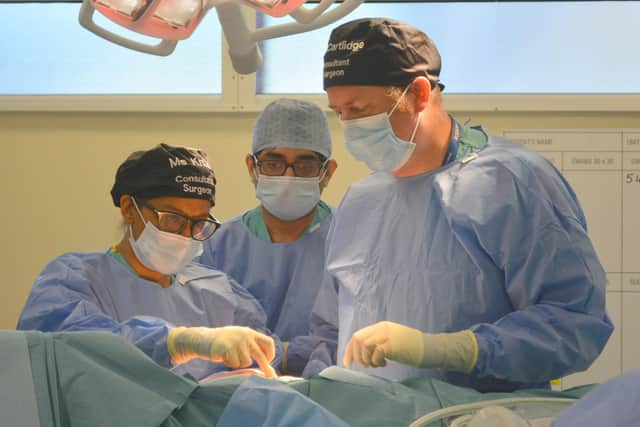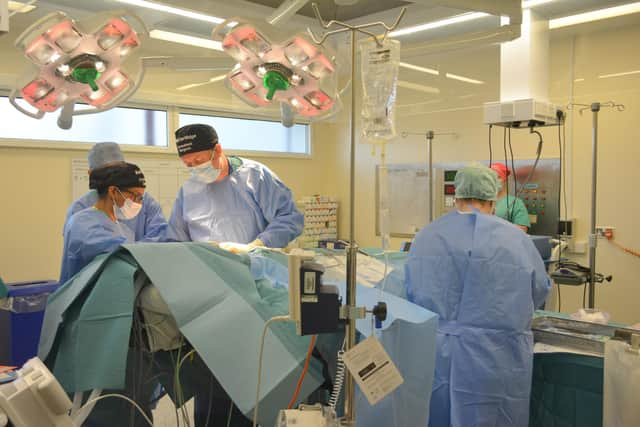Fife hospital pioneers new breast cancer surgery to eliminate overnight stays
and live on Freeview channel 276
The surgical team at Queen Margaret Hospital in Dunfermline has become the first in Scotland to use new techniques which bring benefits to all patients, and could limit the number of overnight stays.
Breast cancer surgery, including mastectomy and axillary node clearance, usually requires patients to remain in hospital overnight after surgery.
Advertisement
Hide AdAdvertisement
Hide AdPatients are very often fitted with a drain to prevent fluid accumulating, which can be uncomfortable and increases the risk of infection at the wound site.


The surgical team uses fibrin tissue sealant in mastectomies and axillary node clearances.
The new technique sees a form of tissue glue, which is commonly used in other types of surgery, applied on the inside of the breast to seal the tissue.
The amount of fluid produced is reduced both during and after surgery, and enables patients to be safely discharged home the same day without the need for a drain.
Advertisement
Hide AdAdvertisement
Hide Ad

And removing the need for a fluid drain provides a range of benefits for patients - improving comfort post-surgery whilst reducing the risk of the complications such as surgical site infections, fluid build-up under the skin) and severe bruising.
The technique also enables patients to be safely discharged earlier to recover at home and results in fewer trips to hospital as there is no drain to be removed.
Patients who prefer to remain in hospital overnight following the procedure will continue to have the option to do so.
Christopher Cartlidge, consultant oncoplastic breast surgeon, has led the development of this new approach in the Kingdom.
Advertisement
Hide AdAdvertisement
Hide AdHe said: “Receiving a breast cancer diagnosis can be devastating and we want to do all we can to make sure any subsequent treatment is as person-centred and straightforward as possible.
“The use of fibrin tissue sealant during mastectomy procedures is a really important development – it means that we can quickly limit bleeding within the breast and means patients no longer require a drain in the days following the procedure. Not only is this much more comfortable, it also reduces the risk of infection and other complications.”}He added: “The feedback from patients has been excellent – people have really appreciated being able to go home within a matter of hours to start their recovery safely in familiar surroundings with their loved ones around them.“
While the pandemic has impaxcted on many health services, urgent cancer procedures in Fife continued
Dr Christopher McKenna, NHS Fife Medical Director, added “The majority of patients requiring a mastectomy want to be able to return home as quickly as possible, and this new procedure enables patients to do so safely whilst reducing the risk of complications at the same time. Importantly though, those who feel more reassured by remaining in hospital overnight will still have to option to do so.
Advertisement
Hide AdAdvertisement
Hide Ad“We always strive to put patients at the centre of everything we do, and developments such as this allow us to do exactly that.”
